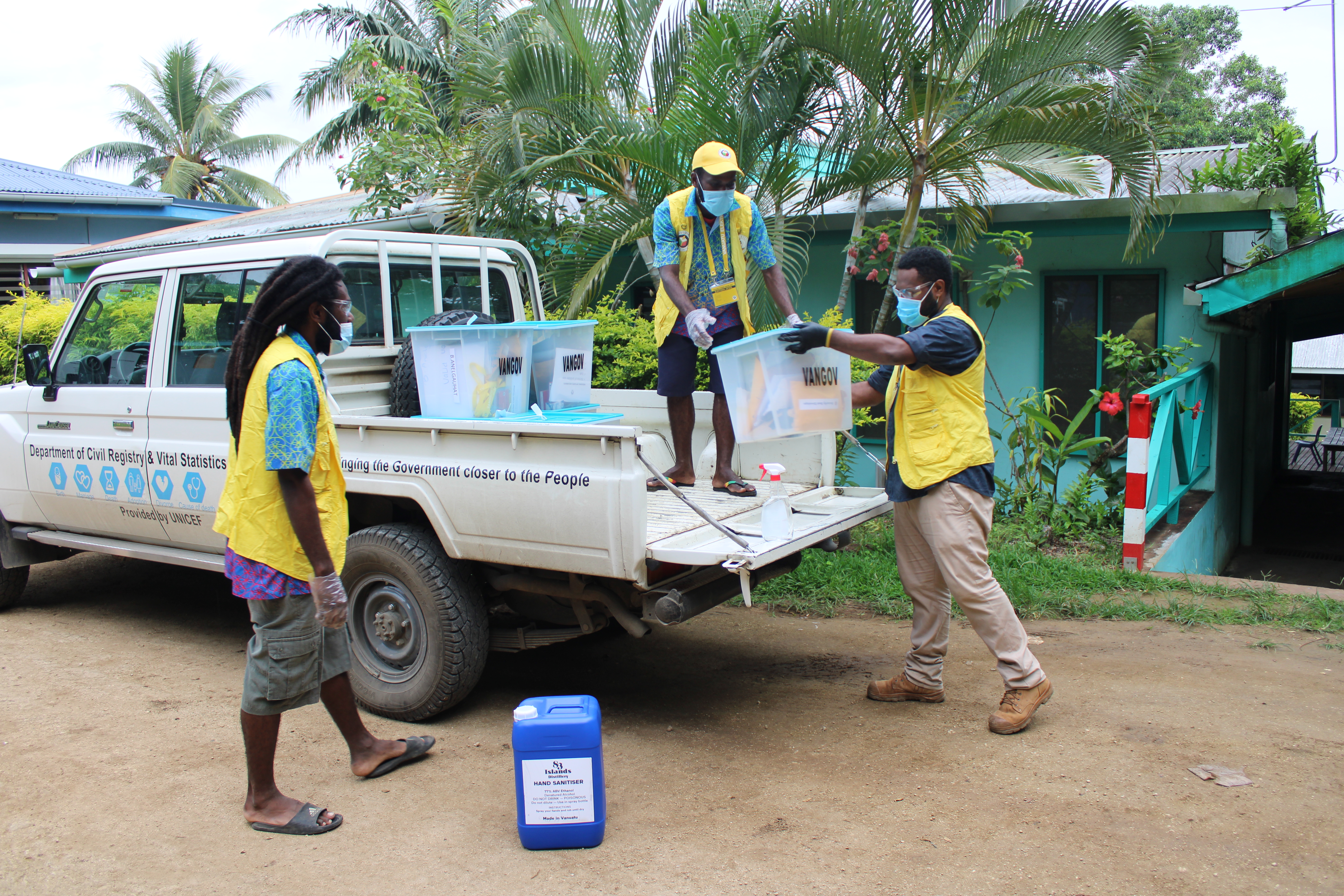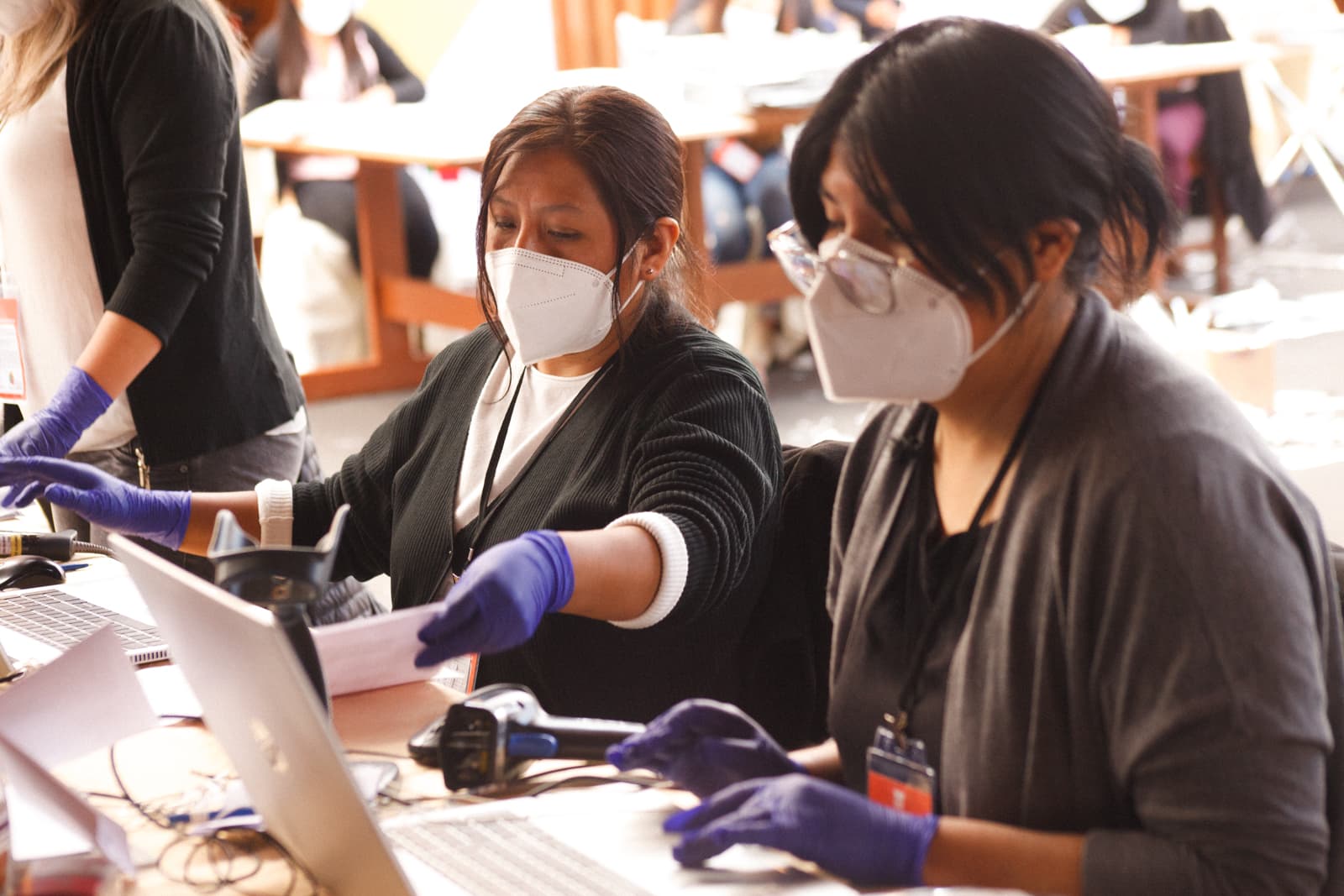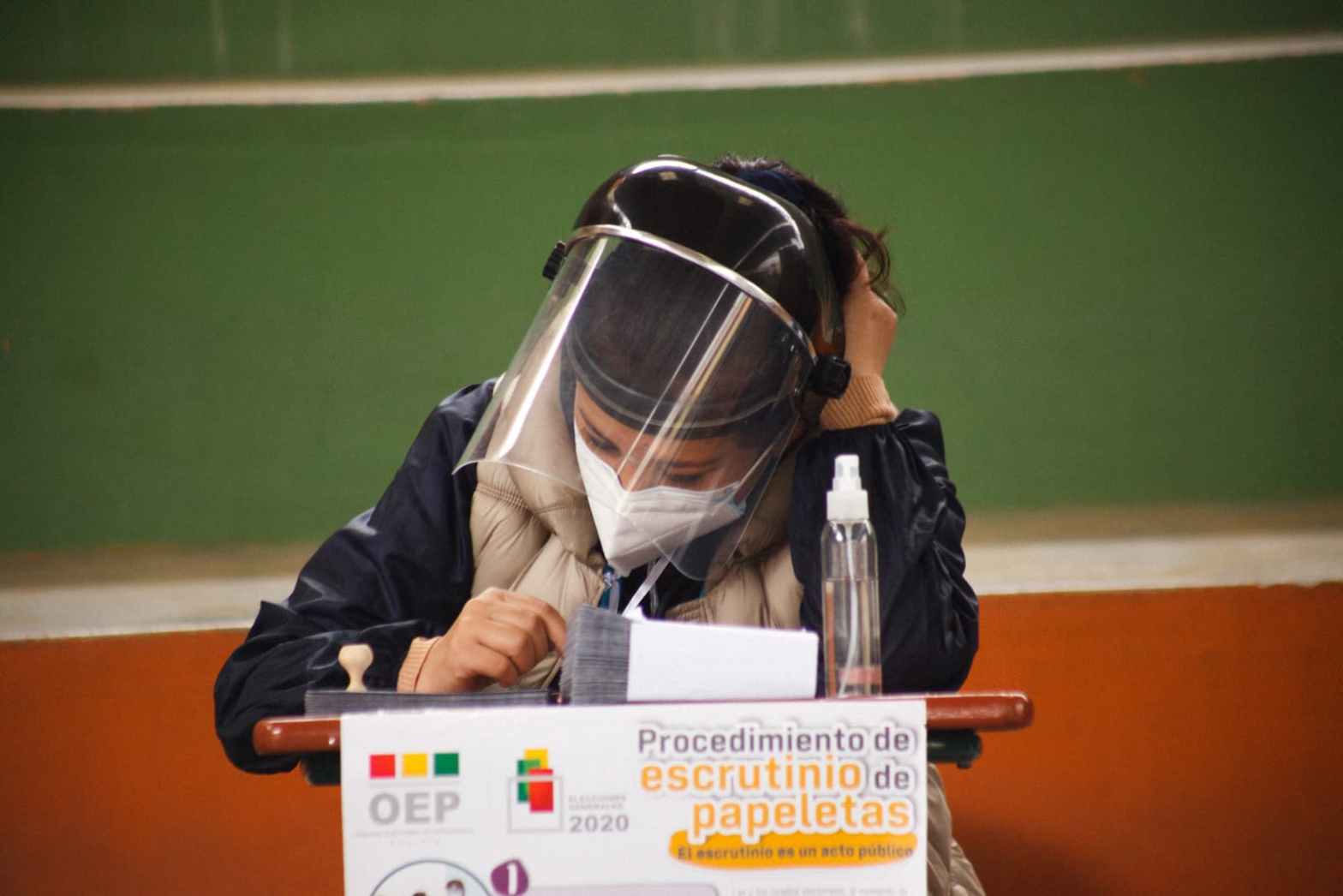On 19 March 2020, eight days after the World Health Organization designated COVID-19 as a pandemic, the small archipelago state of Vanuatu in the South Pacific decided to go ahead with its general elections on schedule. Even though Vanuatu had yet to record a single COVID-19 case, election officials were not taking any chances. With the assistance of the United Nations, they quickly put together a public information campaign to instruct voters and polling officials on physical distancing and hygiene protocols. Health interventions ranged from low-tech (bottles of water strung up on trees for handwashing) to sophisticated (observation of the count verification was facilitated with a video live-stream, allowing observers and candidates to follow the process while remaining physically distant).

Seven months later in Bolivia, on 18 October 2020, in the midst of the pandemic, voters turned out in record numbers to elect a new president, following the annulment of the 2019 general election. Local officials, with assistance from the UN, had reconfigured polling stations to comply with COVID-19 safety protocols. Elections are always high-stakes, especially in winner-takes-all situations, but this one was exceptional. Not only was it the culmination of an agreement among major stakeholders to overcome an electoral crisis that had resulted in deadly protests, but it took place in the midst of the pandemic. Bolivians, many of whom had fallen sick themselves or lost a loved one, had to decide whether to risk turning out in person to vote, or pay a penalty in a country where voting is compulsory.
All around the globe, as the pandemic hit one nation after another, electoral officials had to decide whether to hold their elections as scheduled, or postpone them. While around 50 countries were already receiving support from the UN’s Department of Political and Peacebuilding Affairs’ (DPPA) Electoral Assistance Division and its main implementing partner, the United Nations Development Programme (UNDP) in 2020, many others approached it for advice on pandemic-related matters.
A Regional Focus: Recent Elections in Africa
Elections are complex and delicate exercises under the best of circumstances, let alone during a pandemic. Over the past year, EAD, working with partners within and outside the UN, continued to help countries around the world prepare for elections and face the challenges that often accompany them. Akinyemi Adegbola, Chief Electoral Officer at the United Nations Office to the African Union, walked us through how the UN assisted different African countries in preparing for and conducting polls in 2020.
“The big success of the past year is that elections were able to proceed in almost all cases, despite the pandemic, and without those electoral activities being necessarily perceived as the source of any spikes in COVID-19 infections,” he said.
In the Central African Republic, in the midst of a complex political and security context, Adegbola led an advisory mission ahead of the elections to assess the state of preparedness and to ensure closer cooperation between UN entities such as United Nations Multidimensional Integrated Stabilization Mission in the Central African Republic (MINUSCA) and UNDP with other non-UN providers of assistance.
In Sao Tome e Principe, the EAD-led team carried out a needs-assessment mission in a context where electoral reforms had become controversial, polarizing relations between various key political actors and institutions.
In Zimbabwe, where the political transition was already facing increasing political, economic and social challenges, a needs assessment mission recommended the continuation and expansion of assistance, a demonstration of greater confidence in the UN system’s added value.
Malawi held its general elections in May 2019. After court complaints over voting and result-collation irregularities from the leading opposition party, the results were annulled. At the request of the government, the UN supported the conduct of the election rerun, but not without first soberly considering the implications of engaging in this, in such a sharply polarized environment. “There were many challenges, not least that the United Nations was taking a risk in supporting what might potentially be a highly flawed process,” Adegbola recalled. “If it withheld support, though, it risked the perception of taking sides, thus endangering UN relations with host authorities, which could impact other UN programmes in the country”.
Malawi also requested that the UN provide technical assistance to promote national dialogue, with the aim of mitigating the potential for election-related violence. In addition, DPPA provided support and advice to the United Nations country team including through the deployment of a senior official.
The project team on the ground helped develop voter education activities aimed at promoting the participation of women, youth, and persons with disabilities. It also facilitated training courses on the management of election security for police and on pandemic mitigation methods. It worked with UNDP, UN Women, UNOAU, UHCHR and other UN entities both in the field and at Headquarters, as well as with partner organizations including the African Union, Southern African Development Community (SADC) and European Union, to discuss how the international community could support the people and Government of Malawi in the holding of peaceful, inclusive and transparent elections. The country successfully held a “fresh presidential election” in June 2020.
Overall, Adegbola considers UN engagement in Malawi to be an important success of the last year. “It must be acknowledged that the country’s institutions functioned effectively in dealing with a delicate situation. But UN engagement further contributed not only to the rerun of the election, but also a smooth transition from the incumbent to the victorious candidate,” he said.
The UN’s focal point for electoral assistance is the Under-Secretary-General for Political and Peacebuilding Affairs. Electoral assistance can only be provided if a Member State requests it, or if there is a mandate from the Security Council or the General Assembly. Once this has been received, the Division carries out a Needs Assessment Mission (NAM) that, pre-pandemic, meant sending a team out to the field to ascertain what kind of assistance would be the most useful. Member States usually request technical assistance, which includes advice and capacity-building on matters such as legal frameworks, operations and logistics.
Craig Jenness, Electoral Assistance Division Director, said that during the pandemic, he has observed that Member States with elections on the horizon share a common concern: Should they go ahead, given the public health implications?
Ideally, such decisions should be reached by consensus, after consultations with legal, technical and public health experts, political parties and civil society organizations, including women’s groups, and other stakeholders. But these decisions are not easy to make. “The pandemic can affect different parts the country, different parts of the population; perhaps older voters will be less willing to vote, for example”, he said. To delay, or not to delay, raises complex legal, political, human rights and public health challenges. In the end, national sovereignty prevails – the final decision is for the Member States themselves to make.
As Simon-Pierre Nanitelamio, Deputy Director of the Division, points out, the number of requests for assistance his team received during the pandemic rose quickly, and it needed to quickly review its working methods. “We used to deploy teams to the country for needs assessments, and our first instinct was to postpone these visits,” he said, “but then we quickly developed alternative modalities. Now, though very challenging and not the ideal option, we started conducting virtual needs assessments also, when the situation does not permit a deployment on the ground”. Once a Member State has decided to postpone or maintain their election schedule, the United Nations can help with that decision. “In instances where they maintained the election schedule, our role was to propose pandemic mitigation measures”, he said.
Nanitelamio notes that the UN provided personal and protective equipment (PPE) to Member States such as the Central African Republic, Mali and Vanuatu. “With PPE, it is often the case that Member States, particularly poorer ones, may simply not have the extra resources and financing required at short notice”, he said.
In the case of Bolivia, after the 2019 elections were annulled and as a result of the developing situation, the Secretary-General dispatched a personal envoy, Jean Arnault, to engage with all Bolivian actors and offer UN support to help find a peaceful resolution, including through “transparent, inclusive and credible” elections. The Agreement reached between local stakeholders paved the way for new general elections to be held in 2020 and called for the UN to provide assistance. Early in 2020, electoral experts were deployed to work with the country’s electoral authorities providing technical support and advice. The pandemic forced elections to be postponed twice, during which the electoral project also assisted and advised the electoral authorities on pandemic mitigation measures. When elections were finally held on 18 October, voter turnout was the second highest in the country’s history. A total of 6,484,008 votes were cast in the 2020 election, with 88.42 percent voter turnout at 35,600 polling stations.

Fernanda Abreu Lopes, UNDP’s Chief Technical Adviser in Bolivia, noted the vital role that the UN electoral assistance project played in implementing the joint UNDP-EAD guidance on pandemic safety measures and other protocols. Her office is intimately familiar with Bolivia’s context and challenges, and works on electoral projects in tandem with existing development programmes, policy and strategies. “Electoral projects are enormous – an event that takes place in one day is the biggest logistical operation that a country can have during peacetime”, she said.
Abreu Lopes remembers watching the first voters arrive on election day at a polling station in the city of Sucre, Chuquisaca, in the southern highlands of Bolivia, on the first day of local elections in March 2021. An elderly man and woman, wearing masks, were helped by two police officers. “It was quite emotional watching them make the effort to come out and vote in the middle of a pandemic,” she said. “So many people in the world have fought and died for the right to vote. It’s really the only thing in the world that is equal for everyone. The privileged don’t get to jump the queue”.
+++
Title photo: A poll worker preparing ballots for election day (18 October 2020, La Paz). Photo credit: Alma Films for the Electoral Pillar of the UN in Bolivia.
